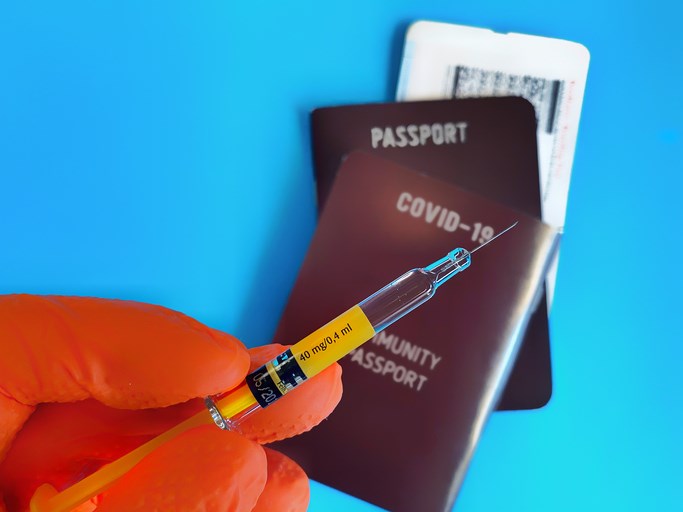As most British Columbians continue to await their chance at inoculation against COVID-19, several hurdles remain.
The original estimates of a province that would achieve herd immunity after providing vaccinations to about 70% of its residents may have to be revised, due to the emergence of new variants of the virus. We have also seen that about one in six residents of British Columbia have consistently maintained their skepticism about inoculation, and do not plan to get the shot.
In this context, the concept of a “vaccine passport” is starting to be discussed beyond the realm of social media, where some have equated it to apartheid. The idea would entail issuing proof-of-vaccination certificates for people who have been inoculated against COVID-19.
Governments, whether they are willing to publicly talk about it or not, are keenly aware that this may be a short-term solution to allow some people to go back to the way their lives were before the pandemic. British Columbia Premier John Horgan recently pointed at changes in existing regulations that would provide “a bit more flexibility” to those who have been inoculated against COVID-19.
Live sports – one of many industries that have been affected by the pandemic – is starting to outline scenarios where inoculation will bring access. The upcoming National Football League (NFL) Draft, to be held in Cleveland, will allow vaccinated individuals to sit closer to the stage, a huge difference from last year’s contactless event hosted entirely through teleconferencing.
When Research Co. and Glacier Media asked British Columbians about vaccine passports, majorities of the province’s residents regarded them as a “good idea” in eight different situations. This was not a surprise. We have seen sizable proportions of British Columbians observing guidelines and expressing a willingness to be vaccinated when the opportunity comes their way.
One of the reasons for naming vaccine passports as such is the lingering fear that allowing non-inoculated persons to fly wherever they desire will lead to higher rates of transmission upon their return. In our survey, more than seven in 10 British Columbians (73%) endorse the idea of a vaccine passport for international travel, while 64% feel the same way about the concept for travel to other Canadian provinces.
Three in five British Columbians (60%) like the notion of a vaccine passport for travel inside their own province. Implementing policies for some of these types of travel will be remarkably complex, but the level of support for the concepts shows how careful most British Columbians are about tourists bringing back the virus to their communities.
Positive perceptions about the idea of vaccine passports are also observed in activities that are much closer to our homes. More than three in five British Columbians (62%) believe a certificate is a “good idea” for people to be able to attend live sporting events, attend live concerts or visit a gym or fitness facility.
These results echo , when similar proportions of British Columbians said they would not be comfortable attending live sports (65%), live concerts (64%) or gyms (60%) if they have not been vaccinated.
A slightly smaller proportion of British Columbians believe a vaccine passport would be adequate for people to be able to go back to work at an office (58%) or to attend the theatre or cinema (56%). We recently learned that who have worked from home during the pandemic are ready to abandon their home offices forever. Production studios simply will not recover their investment on high-profile motion pictures if a vast proportion of the ticket-buying audience feels unsafe inside the venue.
At this stage, the notion of vaccine passports is not regarded as a deal-breaker by most British Columbians. Of course, some members of that remains skeptical of COVID-19, and wary of any vaccination attempts, will undoubtedly look at them as yet another infringement on their freedom: just like the oppression that they perceive is happening when they are asked to wear masks when entering indoor premises or to provide a telephone number at a restaurant for contact tracing.
As spring continues and with vaccinations rates expected to be significantly higher in the next few weeks, we should not embrace the illusion that we will carry on with our summer activities the same way we did in 2019. We may end up in a situation where, depending on inoculation, certain activities, places and types of travel will be open to some and not all. Right now, a majority of the province’s residents appear to regard the vaccine passports” as a temporary nuisance that may facilitate a sense of normalcy before herd immunity arrives.
Mario Canseco is president of Research Co.
Results are based on an online survey conducted from March 19 to March 21, 2021, among 800 adults in British Columbia. The data has been statistically weighted according to Canadian census figures for age, gender and region in British Columbia. The margin of error, which measures sample variability, is plus or minus 3.5 percentage points, 19 times out of 20.



